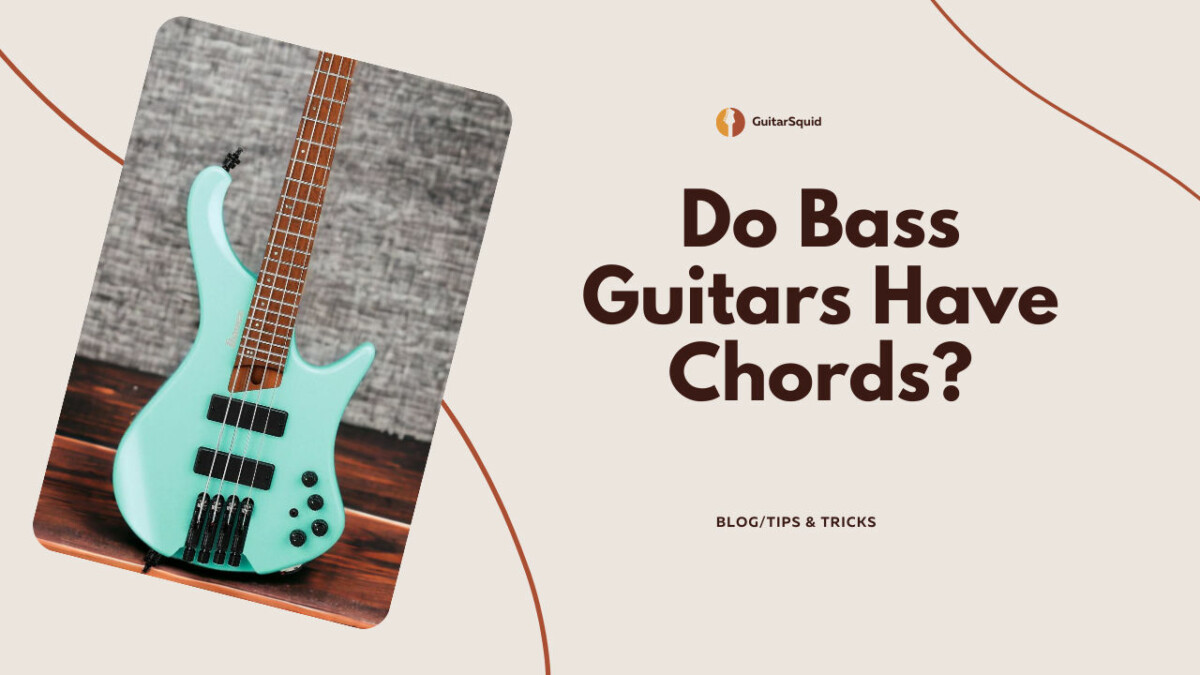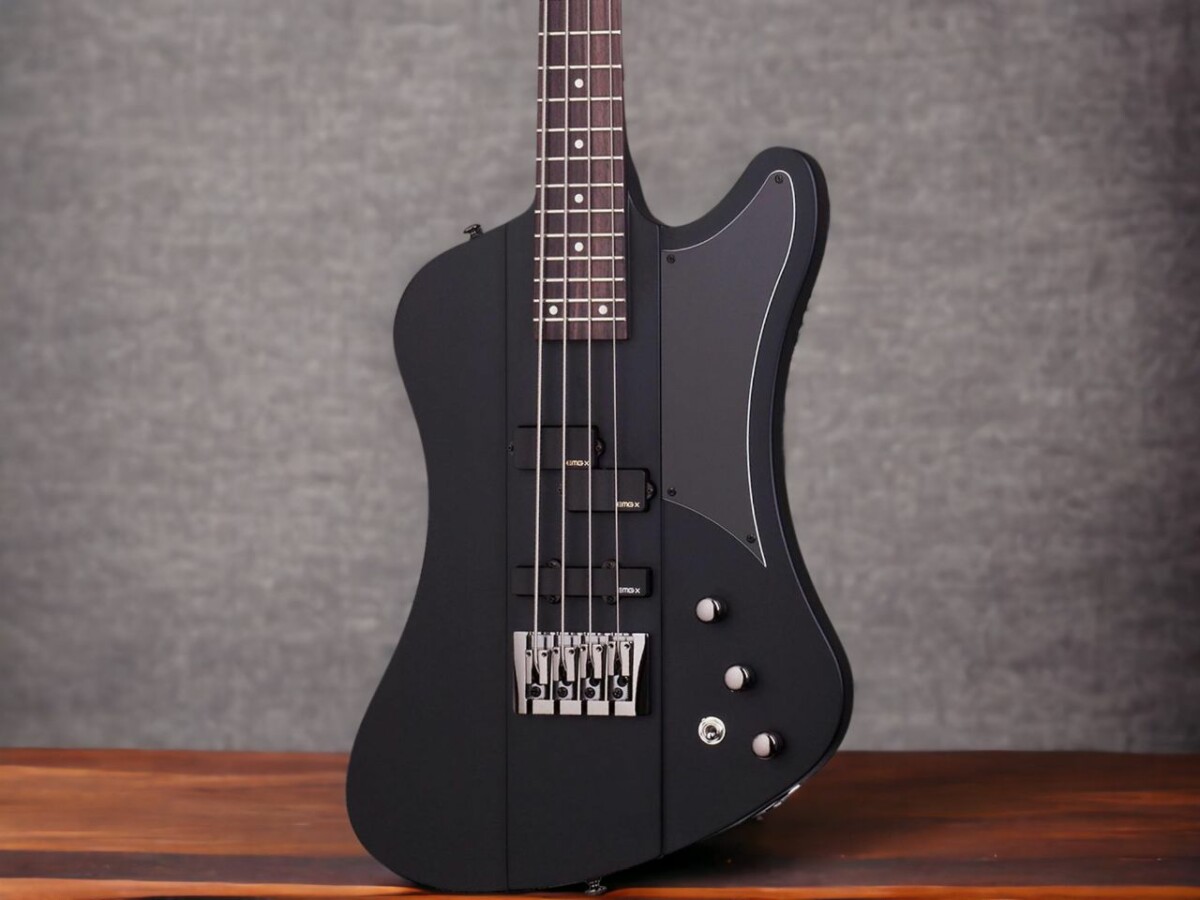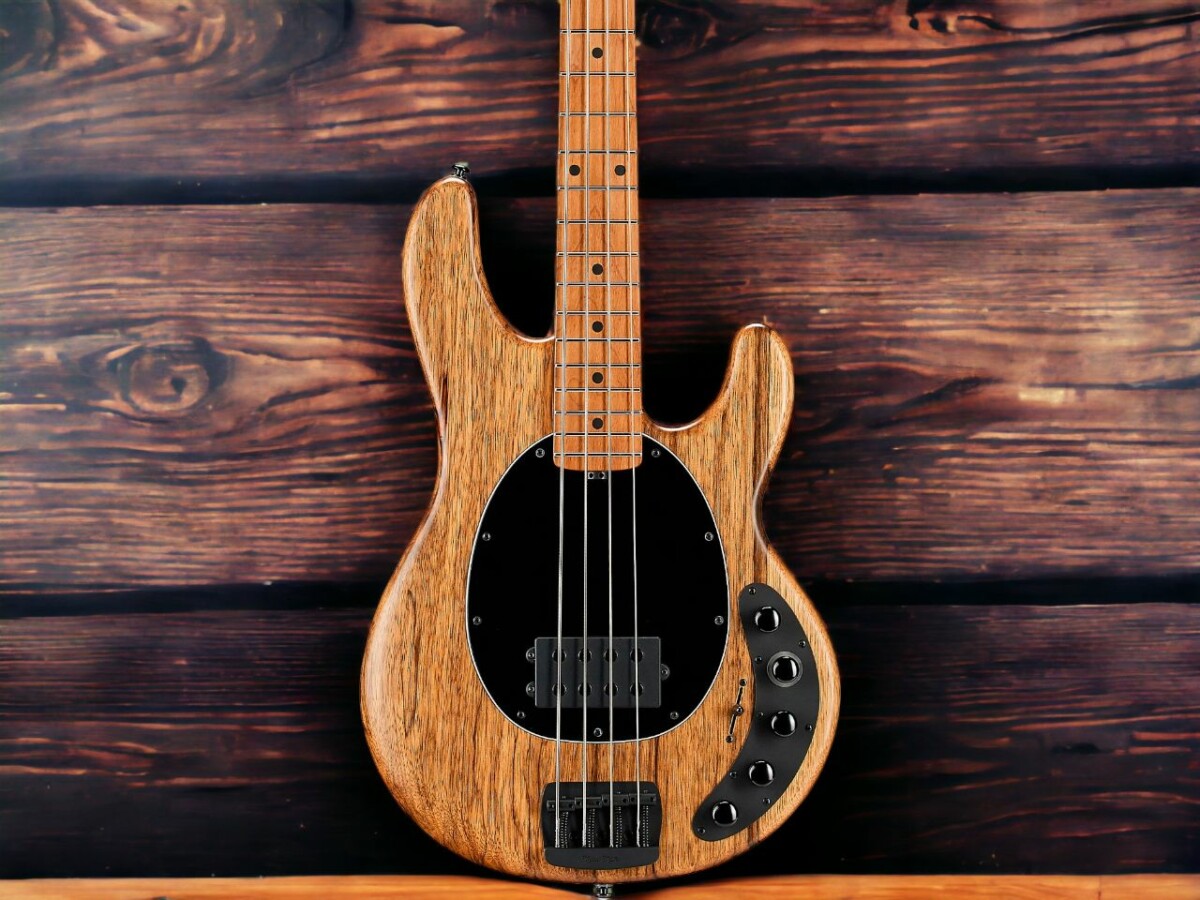So, you’re a bass guitarist, right? You’re keen to explore new musical horizons. Ever thought about integrating chords into your bass play?
It’s not typically done, mainly because it might clutter up the sound. But hey, don’t dismiss the idea just yet. With a bit of creative maneuvering, you can make them work for you.
Let’s delve into the realm of bass guitar chords and see how they can give your music a distinct edge.
Basics of Bass Guitar Chords
Absolutely, you can bust out chords on a bass guitar. But honestly, it’s not as common as on regular guitars because those low frequencies can get kind of murky when they’re played together. Bass players often lean more towards intervals, like those tenths or fifths, instead of jamming full chords. If you’re feeling adventurous and want to play chords on the bass, just make sure they’re voiced right. This way, you can avoid that muddy sound and ensure the chords flow nicely with the rest of the music. Rock on!
So, here’s the thing about bass guitar chords – they’re not as common as you’d expect, especially when you’re jamming out in the lower register. This is because they tend to come off kinda muddled. But, don’t let that stop you. Spice up your sound by exploring diverse chord voicings on your bass. The upper register is a great spot for this since chords tend to sound crisper there. Don’t be afraid to mix things up and find what voicings vibe with your style.
When you’re in a band and you want to incorporate bass chords into your arrangement, you’ve gotta be super tactical. Chords can easily hog the sonic space, potentially stepping on the toes of other instruments. Always remember, you’re part of a squad, not a solo act. Be considerate of the whole sound and work to elevate the music, not drown it out.
When experimenting with different chord structures on your bass, ensure your fingering is precise. If you have long nails, they might interfere with your playing, so be aware of your hand positioning.
At the end of the day, it’s all about creating a sound that’s balanced and harmonious. You’ve got this!
As you continue your journey in exploring bass guitar chords, you might want to consider plugging a bass into a computer to record and listen to the distinct sounds you create.
Why Bass Chords Sound Different
You might’ve picked up on the fact that bass chords have their own vibe going on, right? That’s mostly thanks to the low-frequency vibes coming from the strings. Sometimes, this can make the sound a bit murky, but don’t sweat it – there are ways to get around this.
For instance, you could try jamming higher up on the neck or plucking the strings closer to the bridge – this can really help to clean up the sound.
Another trick is to be choosy with your chord voicings, especially when you’re playing with other instruments. It’s all about creating that harmony. Plus, it’s always fun to play around with the different tones of bass chord voicings. Mix and match, experiment a bit, and see what vibes with you.
And hey, remember, it’s the distinct sound of bass chords that makes them so cool. The game is all about finding that perfect balance between clarity and depth. So, go ahead – explore, experiment, and embrace the uniqueness of bass chords.
The Art of Playing Chords on Bass
Getting the hang of playing chords on a bass is like learning another language. It’s all about understanding the rhythms, the harmonies, and bringing your own flair to the table. It’s a crazy ride that’ll push your musical boundaries, but trust me, it’s so worth it.
Let me give you some tips on making your own distinct chord voicings on bass:
- Mix it up with your finger placements, you’ll be amazed at the wild sounds you can create.
- Try messing around with chords in the higher register of your bass, it’ll add a whole new vibe to your tunes.
- When you’re with your band, sneak the bass chords into the arrangement; it’s all about the subtlety.
- Look up to those bassists who’ve got the knack for chords; they’ll be the fuel to your fire.
Keep in mind, this isn’t about outdoing everyone and becoming the next big solo act. It’s about adding depth to your band’s sound and exploring fresh musical landscapes.
To truly appreciate the depth and clarity of the bass chords you’re learning, you might want to use headphones with a bass guitar. This will allow you to hear every detail, helping in refining your technique.
Genre-Specific Use of Bass Chords
Dive headfirst into the fascinating world of genre-specific bass chords and you’ll be amazed at the sheer diversity of musical styles out there. Each style has its own unique spin on chordal bass playing, making it an exciting journey of discovery.
Taking a closer look at jazz fusion, for example, you’ll see that bassists make the most of the upper register of their instrument to belt out clear, resonant chords. This is a key element that adds to the genre’s intricate, multi-layered sound.
On the other hand, when you delve into experimental rock, the approach to bass chords is a whole other ball game. Bassists in this genre often lean towards unconventional chord voicings, usually played in the lower register. This creates a rich, deep sound that’s as thick as a good bowl of oatmeal, adding to the overall sonic texture of the music.
But regardless of the genre you’re jamming to, never forget how crucial understanding and mastering bass chords can be. It’s like adding an extra gear to your bass-playing machine, giving your sound a whole new depth that can really level up your game.
Famous Bassists Who Use Chords Effectively
When it comes to laying down killer bass lines with chords, a few legends definitely know their stuff. They’ve mastered the craft, experimenting with different chord structures and inversions on their bass guitars, resulting in a sound that’s both rich and unique.
- Take Les Claypool from Primus, for instance. Dude’s a beast, using chords to give his bass lines a whole new level of depth and complexity.
- Then there’s Jaco Pastorius. The guy was a trailblazer, known for his innovative chordal harmonics that shook up the music world.
- Let’s not forget about John Paul Jones from Led Zeppelin. He often used chords to give his music a fuller, more rounded sound.
- And Geddy Lee from Rush? The man’s a genius, using chords in his solos to create a rhythm that’s both dynamic and melodically pleasing.




